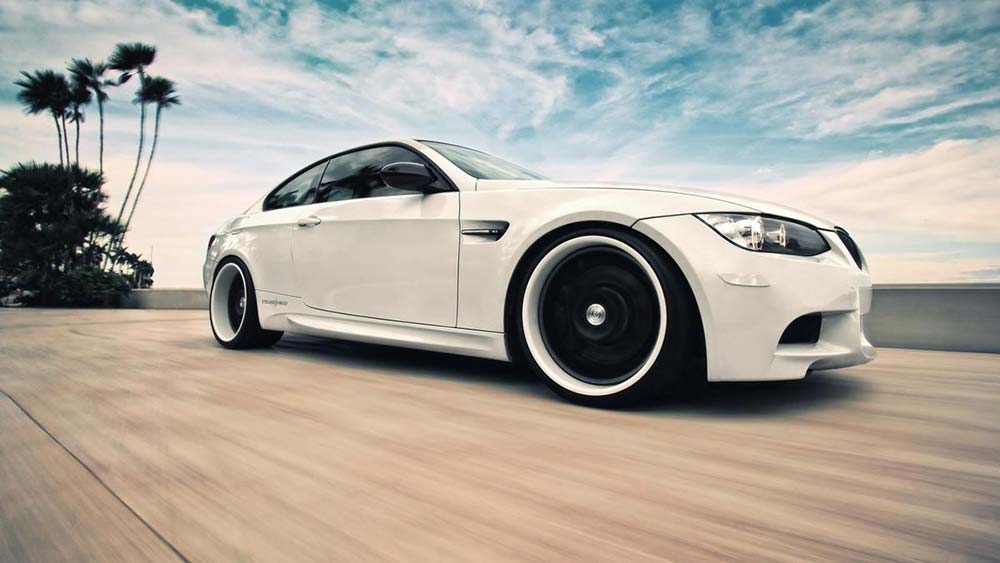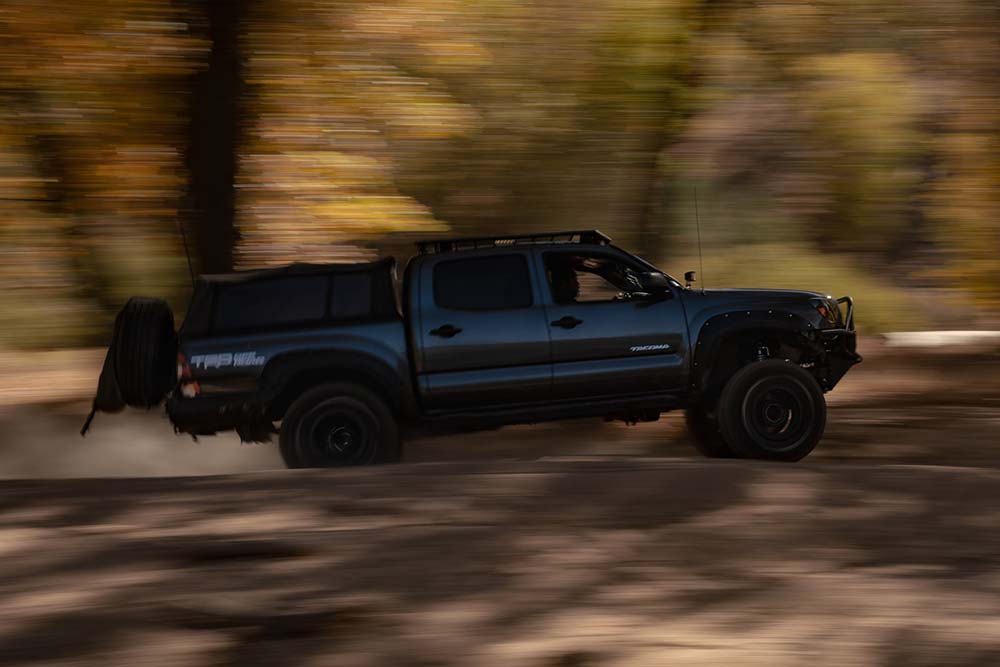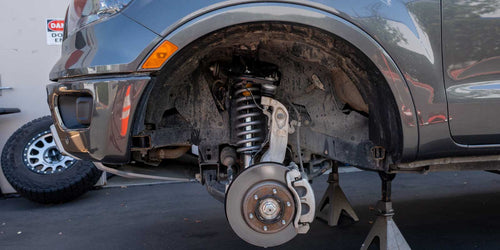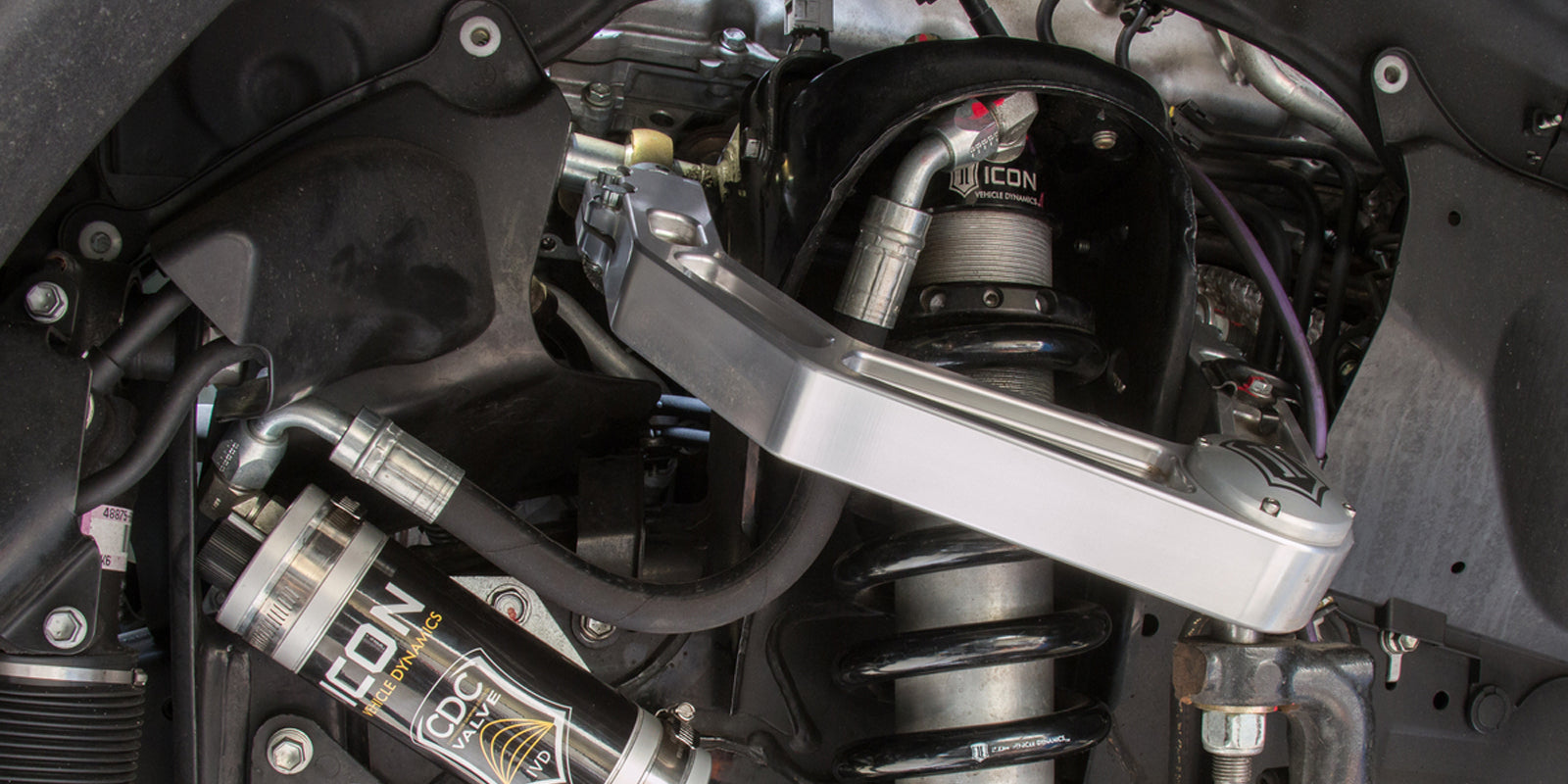What "Improved Ride Quality" Actually Means
When we talk about improved ride quality, what are we really trying to communicate?
It’s not the same for every driver. Some drivers want their daily commute to be smooth and seamless, floating on the highway, cornering or stopping ability be damned. Some drivers want improved cornering and handling ability on backroads or curvy canyons, so they need something firmer than stock. The same goes for offroad vehicles; slow fire road driving or fast desert running, there’s no one size fits all solution for most people.

Street Quality
A set of "performance shocks" for passenger cars on the track or backroads will mean tighter handling, less body roll, less nose dive, and overall greater road feedback. This does not mean a "smoother ride" in the sense of being plush and pillowy. Sport shocks and struts are typically tuned with digressive valving, so the minor body movements of the vehicle are firm to increase handling characteristics, but compliant over bumps and holes in order to maintain optimal traction without unsettling the car.
The smoothest riding shocks you can get would be ones identical or nearly identical to factory tuning, typically something like the Bilstein B4 series, KYB Excel-G Series, or Monroe OE Spectrum. All of these have the most forgiving valving for road handling and comfort.
Using the BMW Example Above:
-
Weekend Track Star - Driver that takes her BMW to the track once a month, or wants predictable handling and cornering: A better shock to her would be a shock that can take small bumps or road irregularities, but keep the tire-pavement contact without missing a beat. A stock-like shock may hit a road obstacle and 'skip' on the pavement, potentially causing loss in traction and control. A performance shock will keep the tire, and thus, the vehicle in control - at the sacrifice of a plush ride while on the freeway.
SHOCKS.RX - Koni, Bilstein B6/B8, Eibach, Cusco, Tein -
Commuter - Driver that takes the BMW to work and/or school every day wants the ultimate shock for road comfort: A performance shock is out of the question in both needs and budget. Keeping the vehicle maintained and functioning at its best is whats important, so a factory replacement shock works here for a 'smooth ride'.
SHOCKS.RX - KYB, Monroe, Bilstein B4 OE

Trail & Offroad Quality
The range of valving and handling characteristics for offroad performance shocks expands much further than what this basic post can cover. The first question we ask customers when they call to ask about new shocks for their vehicle, is "What are your main driving habits, and how often are you off-road?" The type of shock that we’ll recommend for a trail rig is much different than a dune runner or daily driver that camps once a month.
Driver preference and habits are the biggest determining factor in the type of shock the vehicle should be equipped with. There are significant differences between a digressive rate (Bilstein) or linear rate shock (Fox). Digressive rate shocks are typically less forgiving over small bumps or potholes on trucks and jeeps, due somewhat to the length of travel in the shock. The beginning travel stages of the shock are firmer in order to increase highway/road handling (body roll, nose dive control), but the middle stages of shock travel loosen up and feel softer. A linear shock may be more forgiving through the beginning ranges of shock travel, but could be too loose as well for some drivers.

Pure offroad performance shocks are tuned to take bigger hits to the suspension at higher speeds, so they may care very little about road handling or comfort over speed bumps / chunky gravel. Something that may be too firm at lower shock speeds, will feel plush at 40mph+ when that shock is really articulating through its full range of motion extremely fast. You can get the best of both worlds with single or dual adjustable shocks, but that will cost you.
Using the Tacoma example above:
-
Worker - Driver who is using the truck for a work vehicle to carry around his swimming pool supplies, gardening equipment, carpet cleaning business, or a range of other contracting needs: This driver will need a heavy duty shock that can handle the increased loads and last a long time. Comfort may be mildly important, but its mostly about reliability and longevity of the shock, because a down vehicle is a down business.
SHOCKS.RX - Bilstein 4600, Rancho RS9000XL, Old Man Emu Nitro -
Off-roader - Driver who is offroading her truck multiple times a month, and likes to go hard in the dirt: A smoother shock for her is one that absorbs the bigger hits like whoops or divets while 'catching' the truck. The mid range of the shock travel at 45mph feels pillowy, and nice.
SHOCKS.RX - Fox, King, Icon
Lowdown on Ride Quality
"Performance" shocks will "stiffen" up your ride (in most cases) because the shocks are meant to improve ride control and road feedback. High level Performance shocks should improve the ride and comfort through more complex valving and tuning techniques, big reason why these cost big money There’s a huge variance in offroad shock performance, really dig into the specifics of the shocks, and how much performance vs comfort you need from your rig.



